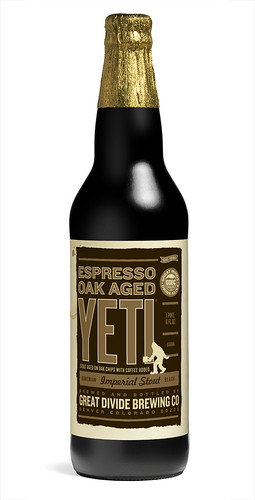NOTE: Please see the update at the bottom of the post.
According to some potentially sweeping legislation, the difference between synthetic caffeine and coffee beans doesn’t matter. So what, you might ask.

Alcoholic energy drinks are a somewhat recent phenomenon. Over the past 5 years or so, numerous companies have entered the malt beverage market with caffeine-infused drinks. One you might have heard of is Sparks. Essentially, take Red Bull and Smirnoff Ice and can it.
While there haven’t really been any studies to confirm that these beverages are dangerous, public outcry after the deaths of some college students who had been drinking similar beverages has caused a federal legislative movement. A few states have already enacted their own bans on these drinks, and the FDA is expected to rule shortly as well.
The issue comes in the form of loose, vague, and overarching wording. In banning caffeinated alcoholic beverages, naturally occurring caffeine, from coffee, tea, and chocolate, would also be banned. So not only is Four Loko going to be banned, but Great Divide Espresso Oak Aged Yeti would also be taken off the shelves. I personally won’t mourn the loss of Joose, but Youngs Double Chocolate Stout will be missed.
The ban on these drinks needs to be more specific. If I want to add some tea to my boil, or some espresso in secondary, I’m not doing so to give the consumer an energy boost; I’m doing it to add flavor and complexity. These natural ingredients need not be banned.
As of right now, I’m not sure what you or I can do to help. Be aware of the issues, and keep an eye on the Brewer’s Association. They’re a great clearing house and focal point for political and legal information related to brewing. Following is the press release from BA about this ban:
BREWERS ASSOCIATION CALLS FOR RULEMAKING ON CAFFEINE-ADDED ALCOHOL BEVERAGES
Boulder, CO • November 16, 2010—The Brewers Association announces today that it will formally petition the U.S. Tax and Trade Bureau (TTB) to conduct rulemaking on alcoholic energy drinks.
The petition seeks to disallow synthetic and pure caffeine additions to alcohol beverages, but allow incidental caffeine from ingredients that have a long tradition in brewing, such as coffee, chocolate and tea. The petition seeks to clarify that coffee, chocolate, herbs, spices, seeds and fruit are ingredients that should remain available to brewers to make beers for responsible enjoyment by beer drinkers.
Certain alcoholic energy drinks have received significant negative attention from state attorneys general, public health groups and concerned citizens. Many states are taking action this fall before the federal government has responded, leaving a patchwork of different regulatory wording, all with the same intention. The goal of this federal petition is to provide a clear and consistent national standard to assist state-based rulemaking under the 21st Amendment. This standard would remove the products of concern from shelves without creating unintended damage to the hundreds of craft brewers who, for many years, have been using traditional ingredients like coffee, tea and chocolate to responsibly craft interesting and flavorful beers.
Brewers Association President Charlie Papazian stated, “Responsible brewers have successfully used coffee, chocolate and tea to add interesting flavor and complexity to their beers for decades. In fact, the Aztecs brewed a corn, honey and chili-based beer that contained cocoa. Many craft brewers build on these traditions today using coffee, tea and chocolate. On the other hand, the addition of artificial caffeine not from a natural ingredient source has no heritage or tradition in brewing. We support a ban on the direct addition of caffeine.” The Brewers Association invites TTB to open up public comment and rulemaking on whether these products are appropriate for responsible consumption.
More information:
- Brewers Association Press Release
- WSJ – FDA expected to ban alcoholic energy drinks Wed
- NY Times – F.D.A. Says It May Ban Alcoholic Drinks With Caffeine
- CNN – Senator: FDA to ban caffeinated alcohol drinks
.
UPDATE
The FDA sent warning letters to 4 companies they were seriously concerned about. In their explanation, they specifically said coffee-flavored beverages are safe, at least for now:
These warning letters were not directed at alcoholic beverages that only contain caffeine as a natural constituent of one or more of their ingredients, such as a coffee flavoring. (Read more)
More from the FDA:

